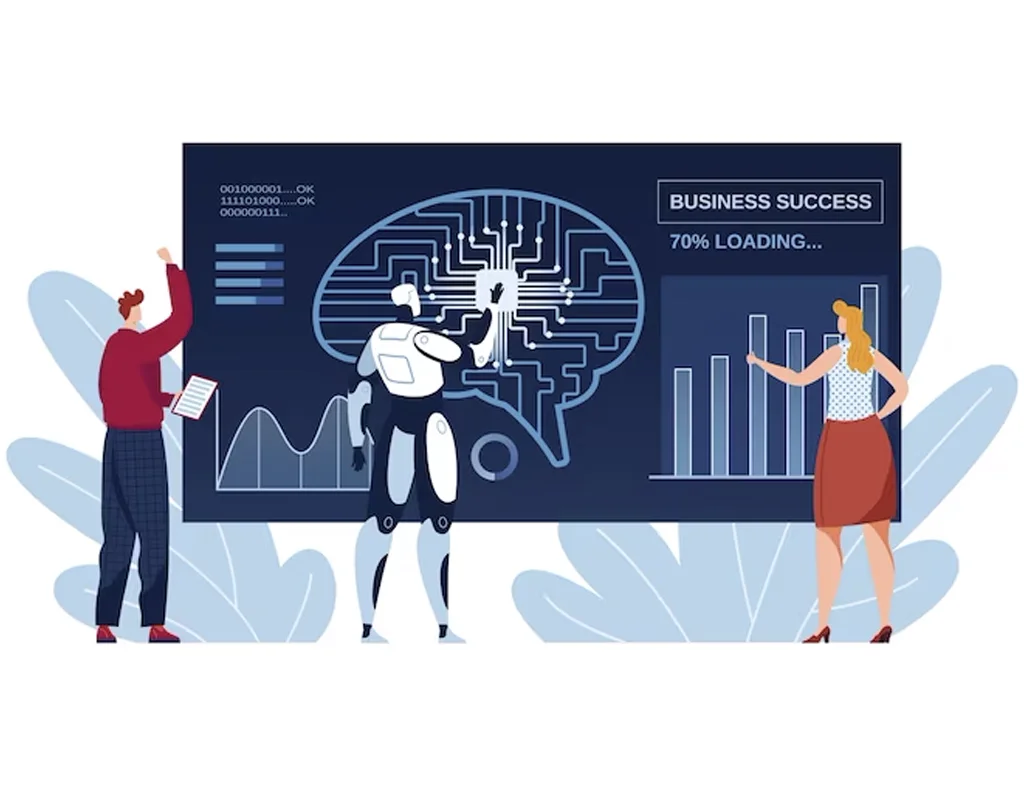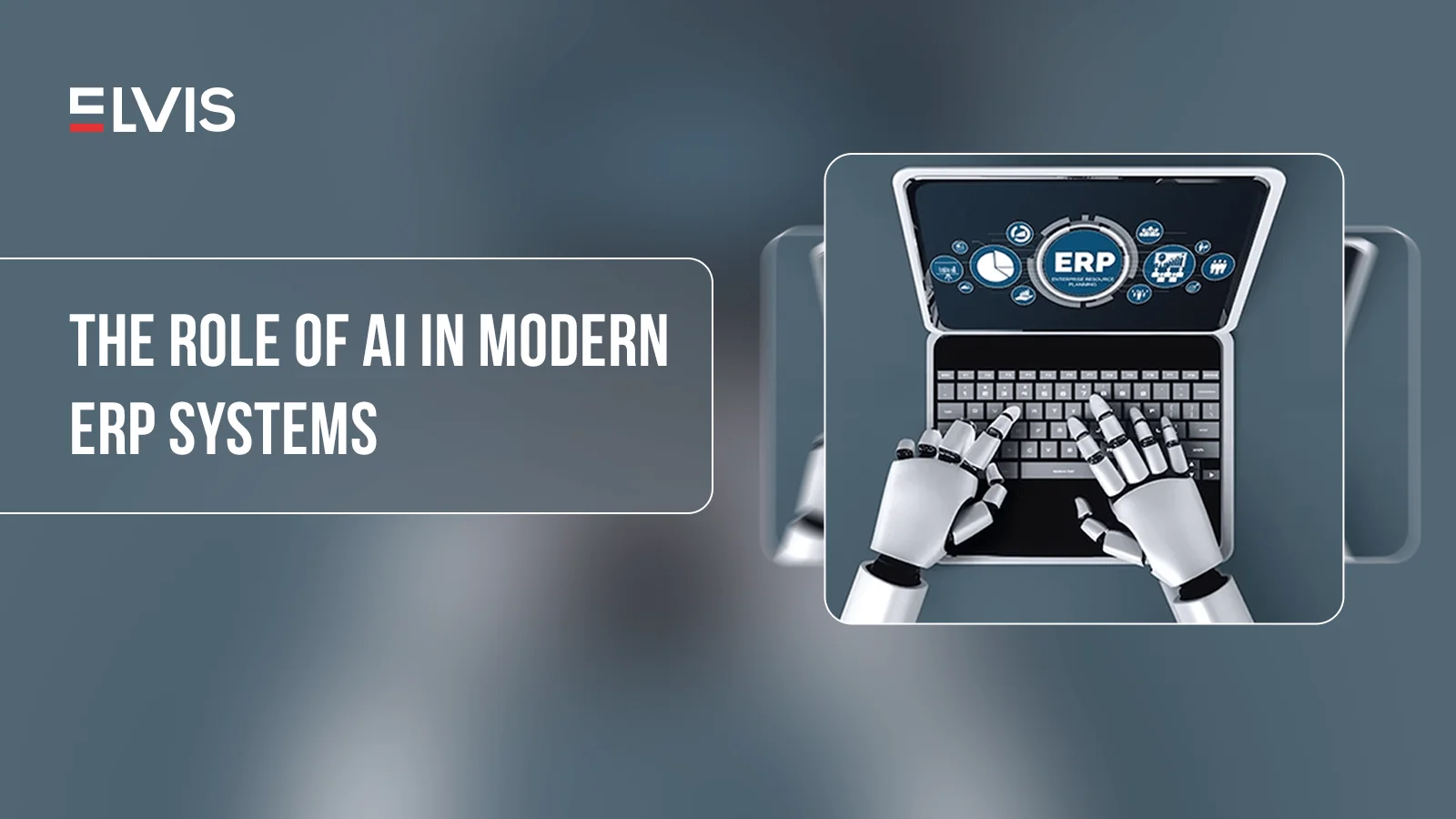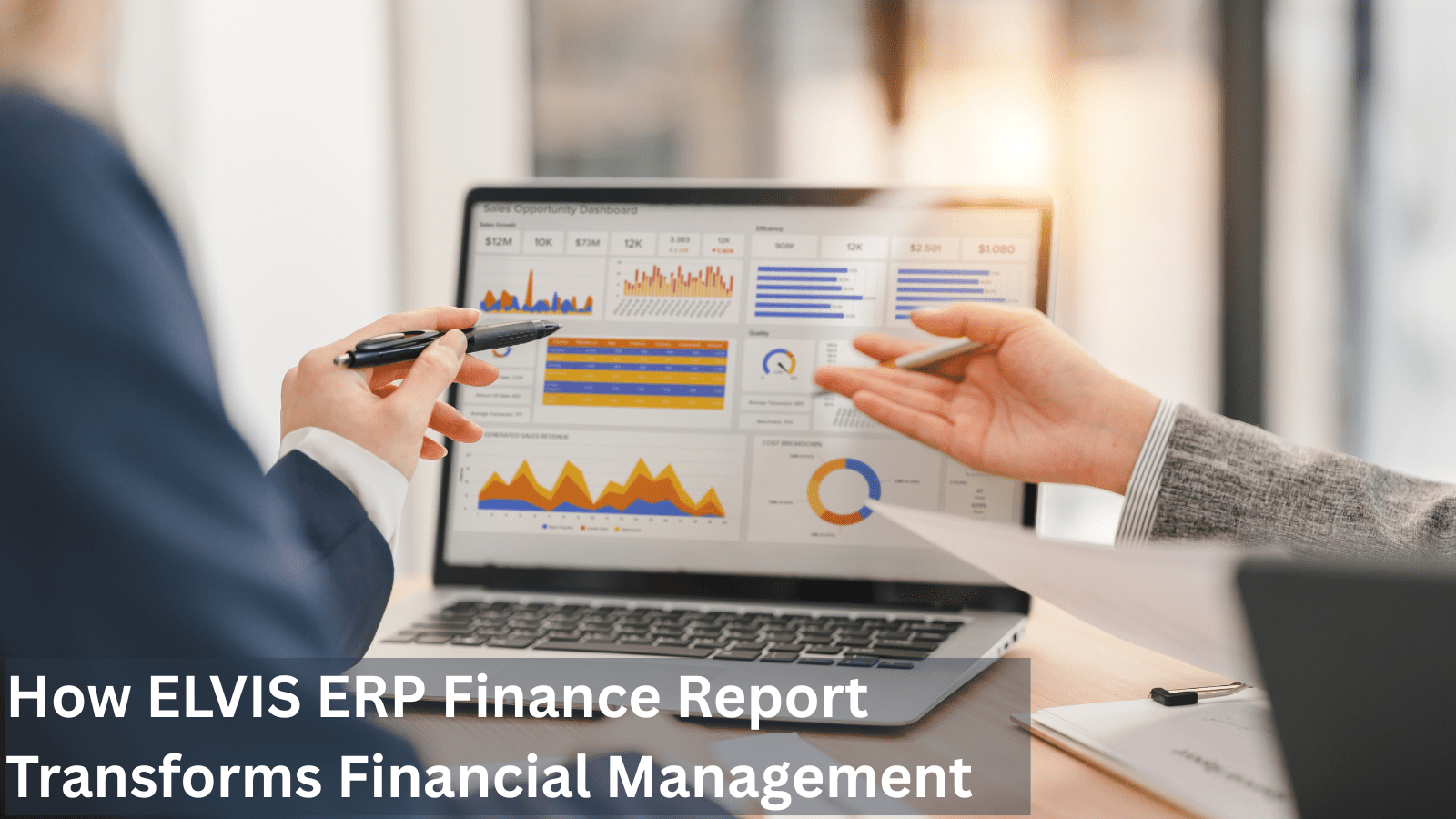Introduction
Enterprise Resource Planning(ERP) systems have come a long from their inception. What started as Material Requirements Planning (MRP) for the manufacturing sector in the 1960s has transformed into multi-faceted systems, enabling businesses to flourish in a competitive world, irrespective of the type of industry.
One way ERP systems have become the super-systems of the modern world is through the integration of Artificial Intelligence (AI). The ability of AI to replicate human intelligence took the world by storm. With AI integration, the scope of ERP systems has changed dramatically, which is why it is crucial to understand the role of AI in modern ERP systems.
Evolution of ERP Systems
The history of ERP systems started in the 1960s when J.I. Case partnered with IBM to develop a Material Requirments Planning (MRP) system. While it took time and resources to maintain, early MRP systems were valuable to track inventory and production.
During the 1980s, Manufacturing Resource Planning (MRP II) systems appeared, which had advanced production scheduling capabilities and helped various departments coordinate.
Later, businesses recognized that these systems could help businesses in any industry. By 1990, research firm Gartner coined the term – “enterprise resource planning”- acknowledging that ERP systems can increase the efficiency of any business.
Today, ERP systems are capable of so much more. They have evolved to address many of the limitations of traditional ERP systems. Some features and improvements include:
- The rise of cloud-based solutions eliminates the need for on-premise infrastructure, makes data accessible anytime and anywhere, and makes it a scalable solution for businesses.
- With the modular architecture, businesses can select and deploy the required modules, increasing flexibility and cost-efficiency.
- Modern ERP systems offer more intuitive and user-friendly interfaces, reducing the learning curve.
- Many ERP systems are accessible via mobile devices, enhancing convenience.

Understanding AI in ERP
Modern ERP systems utilize Machine Learning (ML) and Natural Language Processing (NLP) technologies to analyze data, make predictions, and automate tasks.
Machine Learning: ML is a branch of AI and computer science that uses data and algorithms to imitate human learning. Thus, an ERP system can learn from data and make predictions or decisions without being explicitly programmed.
Natural Language Processing: With NLP, computers can interpret, manipulate, and comprehend human language. In ERP, chatbots and virtual assistants utilize NLP to allow users to interact with the system using natural language, making it easier to perform tasks and retrieve information.
Benefits of AI in ERP
- Data-driven insights: AI-powered ERP systems can analyze vast amounts of data quickly and accurately, which helps businesses gain insights into their operations, market trends, and customer behavior.
- Predictive analysis: They can forecast trends and results based on past data.
- Risk Mitigation: AI can identify potential risks and issues in real time, allowing businesses to take proactive measures to reduce these risks.
- Efficient Processes: AI-driven automation streamlines routine tasks and processes, reducing the risk of errors and manual data entry.
- Cost Reduction: AI helps optimize resource allocation, reducing operational costs.
- Enhanced Customer Support: AI-powered chatbots and virtual assistants can provide prompt customer support 24/7, increasing customer satisfaction.
- Real-time Reporting: AI enables real-time reporting and dashboards, allowing executives to monitor key performance indicators (KPIs) and make informed decisions.
- Personalized Marketing: AI can create individual marketing strategies by analyzing customer behavior and preferences to increase customer engagement and conversion rates.
Essential Applications of AI in ERP
Chatbots and Virtual Assistants: AI-powered chatbots and virtual assistants can enhance user experience within ERP systems. They can assist employees and users by answering questions, providing information, and data entry.
Automation of Routine Tasks: AI can automate repetitive tasks, such as data entry, invoice processing, and report generation, which not only saves time but also reduces the risk of human error.
Machine Learning for Inventory Optimization: AI algorithms can analyze past sales and inventory data to optimize stock levels, ensuring that businesses have adequate inventory to meet customer demands.
Demand Forecasting: AI models can analyze various factors, including historical sales, seasonality, and market trends, to provide accurate demand forecasts.
Quality Control: AI-powered image recognition and machine learning can be used for quality control by analyzing images of products to identify defects or irregularities during manufacturing.
Fraud Detection: AI algorithms can detect unusual patterns in financial transactions, helping prevent financial fraud within the organization.
Maintenance Predictions: AI can predict when maintenance is needed based on sensor data and previous performance for companies with machinery and equipment,
Supply Chain Optimization: AI can optimize the supply chain by analyzing data on supplier performance, transportation costs, and demand fluctuations, helping businesses make informed decisions about logistics and distribution.
Employee Productivity: AI can track employee performance and suggest improvements or training based on data analysis. It can also help in resource allocation and workforce planning.
Energy Efficiency: AI can monitor energy consumption within the organization and suggest energy-saving measures, contributing to cost reduction and sustainability goals.
AI-Driven ERP Implementation
Integrating AI into existing ERP systems:
Follow these steps to integrate AI into your existing ERP system seamlessly:
- Assess your existing ERP’s capabilities and limitations.
- Identify specific use cases where AI can add value.
- Ensure your data is clean, accurate, and well-structured.
- Choose how you will integrate AI – through building custom AI models, leveraging pre-built AI modules, or using AI-powered ERP add-ons.
- Customize AI solutions to meet your requirements and needs.
- Train AI models on previous data and continuously test and refine them.
- Implement robust monitoring to track AI performance and make adjustments as necessary.
- Choose the right AI tools and technologies. Carefully evaluate requirements, conduct extensive research, explore different vendors, and consider factors like integration compatibility and cost.
Challenges and Considerations
When integrating AI into ERP systems, several challenges and considerations need addressing:
Some challenges include:
- Inaccurate or incomplete data.
- Integrating data from various sources of the organization can be complex.
- Lack of robust security measures.
- The absence of transparency of AI-driven processes to employees and stakeholders.
A few considerations include:
- Respect privacy laws and user consent when handling personal data.
- Be vigilant about biases in AI models that cause discrimination.
- Implement continuous monitoring and auditing of AI models to identify and rectify ethical issues as they arise.
- Involve key stakeholders early in the AI-driven ERP implementation process.
- Provide training specific to the needs of different employee groups.
- Gather feedback from employees and address their concerns.
Conclusion
Artificial Intelligence is taking the world by storm. The possibilities of AI in ERP are growing significantly. However, it is critical to consider cost, ethical and security considerations, the size of your business, data quality, and expertise.
The world is constantly changing. Therefore, it is pivotal to embrace the potential of AI within ERP systems to thrive in the competitive digital age.
FAQs (Frequently Asked Questions)
- How does AI enhance ERP systems?
AI enhances ERP systems through various ways, such as automation of repetitive tasks, data analysis, predictive capabilities, real-time reporting, and personalized marketing, to streamline processes and improve decision-making.
- What industries benefit most from AI-powered ERP?
While AI-powered ERP can benefit various industries, some that benefit the most include manufacturing, retail, healthcare, finance, logistics and transportation, and energy and utilities.
- Can small businesses implement AI in their ERP systems?
Absolutely! Small businesses can implement AI in their ERP systems, but the approach may vary based on their resources and needs. Here’s how they can do it:
- Small businesses can opt for cloud-based ERP solutions with built-in AI capabilities, which require less upfront investment.
- Smaller businesses can consider outsourcing AI development and integration to specialized service providers.
- Begin with specific AI applications that offer immediate benefits, such as automating routine tasks or improving customer insights.








